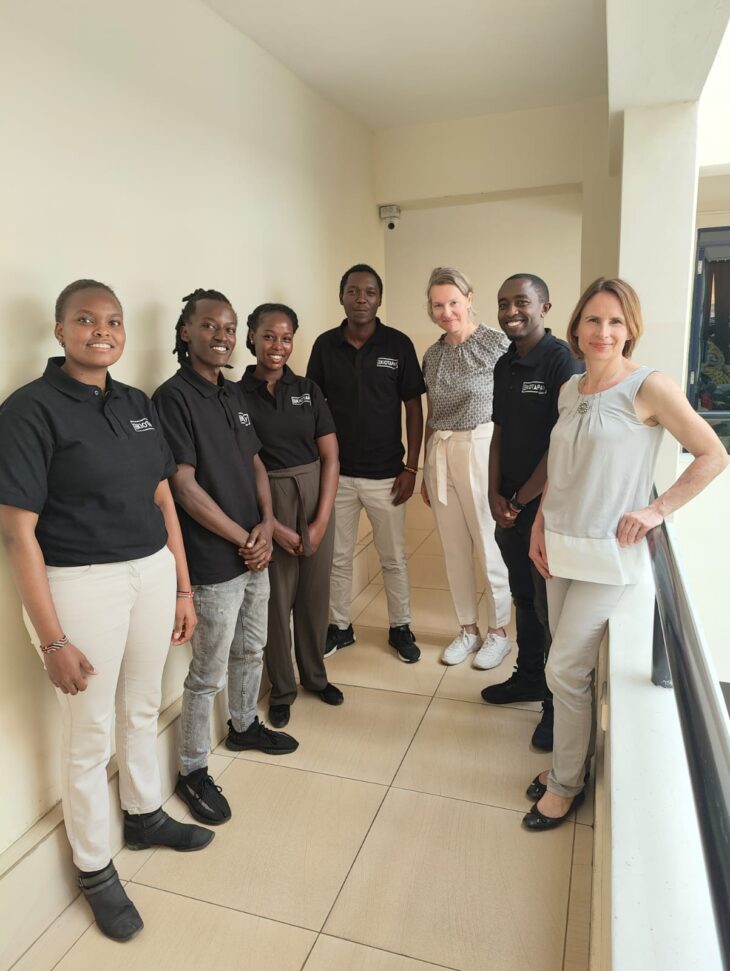NAIROBI Kenya July 14 -Kenyan landlords and property managers are losing 30 percent of revenue monthly due to lack of automation, new data reveals.
Latest Data released by Kiotapay indicates that landlords lose money due to the inability to track and properly reconcile tenants payments from different channels such as mobile money, banking agents payments and banking payments.
According to the report, property owners and agents also lose critical data such as tenants statements, financial records, complaints, repair and maintenance data, which is critical in improving the quality of service they give to their tenants.
Kiotapay Chief Executive Officer Paul Macharia says landlords have to wait for days, sometimes a whole month before receiving the collected rent and have no real time visibility for the payment process.
According to Macharia, landlords and managers also struggle with low occupancy due poor marketing channels and low tenant satisfaction.
“Property automation will lead to greater benefits for property rental investors. It will consequently improve their return on their investment. That means that the cycles of property units going without tenants will also reduce significantly,” he said,
“In the long-run the rental pricing will become affordable for the tenants. The landlords enjoying a 98 percent occupancy have no need of overcharging rent in order to stabilize their return on investment,” he added.
Launched in September 2021, Kiotapay provides an efficient way of aggregating all the moving parts of real estate into one functional app.
The platform makes it cheaper and efficient for self-managing landlords to run their property operations end to end where they can screen tenants, create units, create leases, bill, collect payments and track their expenditure.
“Property owners and landlords have improved their monthly collection by 18 percent and reduced their operational overheads by 13 percent. That means we have been able to pay back a whole 31 percent to our property owners and managers,” Macharia added.
Kiotapay also integrates with smart water, electricity meters, and smart lighting for remote monitoring and control. This is especially useful for AirbnB investors/hosts who want to keep tabs with the water and power consumption for their units remotely without interrupting the comfort of their guests.
“We have a huge clientele from the Kenyan Diaspora market who bill their tenants and receive the payments remotely through our platform and later make payments either for their property expenses, pay loans and move money to other mobile phones or bank accounts,” he added.
According to the report, property sector is experiencing rapid growth driven by innovation.
Some of the emerging technologies in the property sector include Virtual Reality (VR) and Augmented Reality (AR) that allow potential buyers or tenants to experience properties remotely, providing immersive virtual tours and interactive visualizations.
Internet of Things (IoT), where IoT devices can be integrated into buildings, enabling smart features such as automated temperature control, energy management, security systems, and predictive maintenance. This technology enhances sustainability, operational efficiency, and tenant satisfaction.
“Other innovations in the sector include Blockchain technology that offers secure, transparent, and tamper-proof record-keeping systems. In real estate, it can streamline property transactions, digitize property titles, and enable smart contracts, reducing fraud and improving transparency while Big Data analyzes vast amounts of real estate data that helps to identify market trends, evaluate investment opportunities, and optimize property performance. It provides valuable insights for decision-making, risk assessment, and predictive modeling,” the report elaborates.
Despite the huge investment of more than USD144 billion dollars in Africa there is still a shortfall of 51 million housing units due to the mismatch as a result of the paucity of data that exist in the industry.
“For instance, there are rental houses that have an average of 65 percent occupancy while people are looking for suitable houses to move in everyday due to lack of automation in the rental housing market,” the report says.
Additionally, financial leakages in the management of properties such as unreasonable house finders fees, unscrupulous and unprofessional people posing as agents, and unreasonable pricing has led to further losses in the property market, according to the report.
According to the World Bank, the development of housing units in Kenya is currently at less than 50,000 units annually, well below the target number, culminating in a housing deficit of over 2 million units, with nearly 61 percent of urban households living in slums.
Want to send us a story? Contact Shahidi News Tel: +254115512797 (Mobile & WhatsApp)


